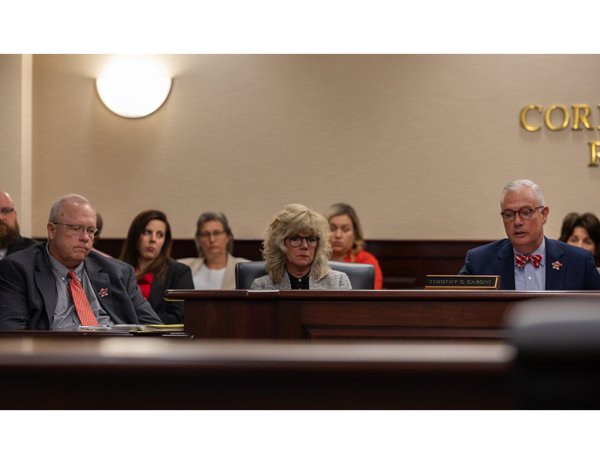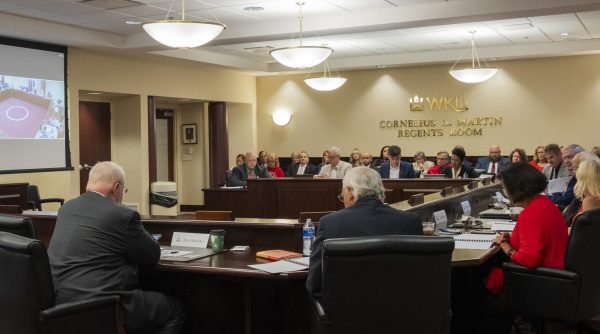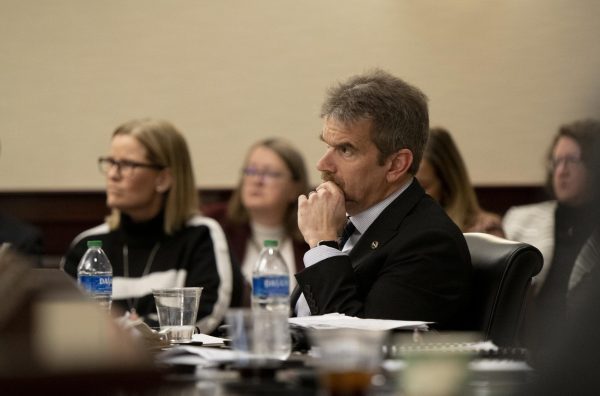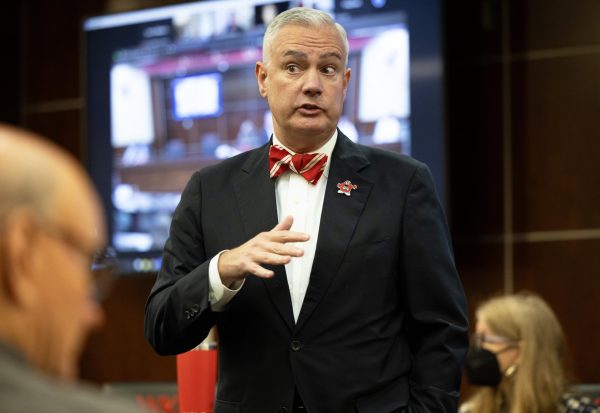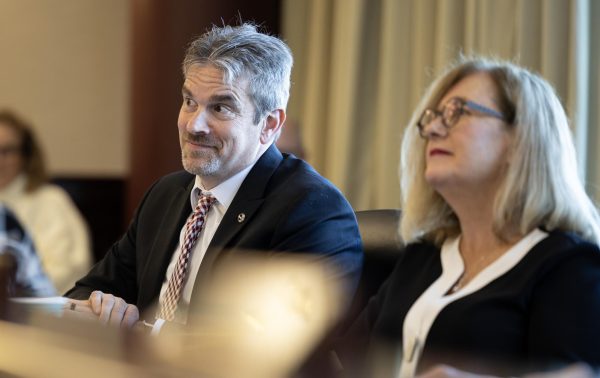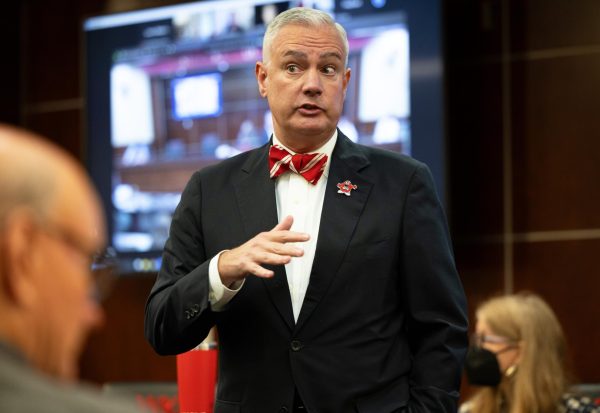Budget Executive Committee rejects one-time payments for faculty, staff
November 2, 2022
WKU’s Budget Executive Committee’s decision to not approve one-time payments to faculty and staff created a stir at Wednesday’s Staff Senate meeting.
Jordan Basham, vice chair of the Staff Senate and member of the BEC, said that the committee voted down the one-time payments ranging from $500 to $1,000.
“My ad hoc committee was focused on making a recommendation on one-time payments for faculty and staff,” Basham said. “We presented an option, or recommendation, and the BEC voted not to accept the recommendation.”
Basham said the BEC voted 15-8 against the one-time payments on Nov. 1. Basham said the members of the committee voted in a closed meeting by a roll call vote. At the time of writing, the official minutes of the BEC meeting have not been published.
“The motion was a recommendation for two $500 payments to full-time [Education and General] funded faculty and staff with current hire dates prior to 1/1/22 making less than $100,000, and one $500 payment to part-time E&G funded faculty and staff who are benefit-eligible and have a current hire date prior to 1/1/22 and also making less than $100,000,” Basham said.
Brian Campbell, chair of the Staff Senate, said the one-time payment idea came about in part because other universities in the commonwealth had done similar things to help combat rising inflation.
The University of Kentucky approved a $1,000 payment in 2021 and the University of Louisville approved a similar payment option this year, Campbell said.
According to the Consumer Price Index, unadjusted inflation rates for all items are up 8.2% over the past 12 months.
“We were looking to do something similar, if there was the opportunity in the budget to do so,” Campbell said.
When asked by David Brinkley, staff regent, for reasons that the recommendation did not pass, Campbell and Basham said there were concerns about enrollment and potential budget impact.
“It was [a] discussion, there wasn’t specific data,” Basham said. “Over the course, it’s a multi-meeting conversation, so there was discussion related to cash-on-hand.”
Brinkley said he was “disappointed” by the committee’s decision, saying that he did not think this was a budgetary matter. He said he is not disappointed in the administration, but in the committee.
“This was a one-time ask, I didn’t anticipate making this ask again,” Brinkley said. “I hope that there is another way that the university can show its support for staff given the current inflation climate that has continued. It was not something that should not be a budget recurrence and this one disappoints me.”
Brinkley and other staff senators brought up the issue of staff retention. Brinkley said it is a “lot of work” to hire a new staff member, which takes away from the original job intended by the university.
“As a department head, when I look at replacing an individual, it’s not just in the ads you put out,” Brinkley said. “It’s in the time you put out […] You either have to figure out a way to pay for the turnover or retain the people you have, and that is not something we vote on in our $370 million budget.”
In discussing the vote, the question of the BEC’s makeup was raised by senators. According to the BEC website, there are two staff senators listed out of the 30 total members.
“I don’t see the representation of staff on the ground, and I think that makes a difference,” Cierra Waller, a staff senator, said. “I know we all care about WKU, but I think the voice of the staff and what we’re struggling with – I can’t see that it would’ve been very much represented on this committee. I think that’s a disservice to us.”
Basham said that while listed under different titles, there were four members that represented staff including Campbell and himself. Similar issues of representation and transparency have been raised in the Faculty Senate, Campbell said.
Brinkley, who agreed representation was an issue that should be addressed, questioned the members of the BEC.
“I think it would be great if that committee believed in this university as much as the people in this room do,” Brinkley said.
Campbell said he had spoken to President Timothy Caboni on Monday about many of these concerns because compensation is always at “the top of the list” of issues to be discussed.
While the one-time payments were not approved, Campbell said the 2% raise pool was on track and would be seen in paychecks in January next year. Basham said they will continue with their responsibility to advocate for compensation for staff members.
“We did not find success with this one-time effort, but I know Jordan, Jason [Cansler] and I will continue to press for any opportunities that we can find where we might be able to make progress on the compensation front,” Campbell said. “In subsequent years, that will continue.”
The next Staff Senate meeting will take place Dec. 7.
Administration reporter Michael Crimmins can be reached at [email protected].
















